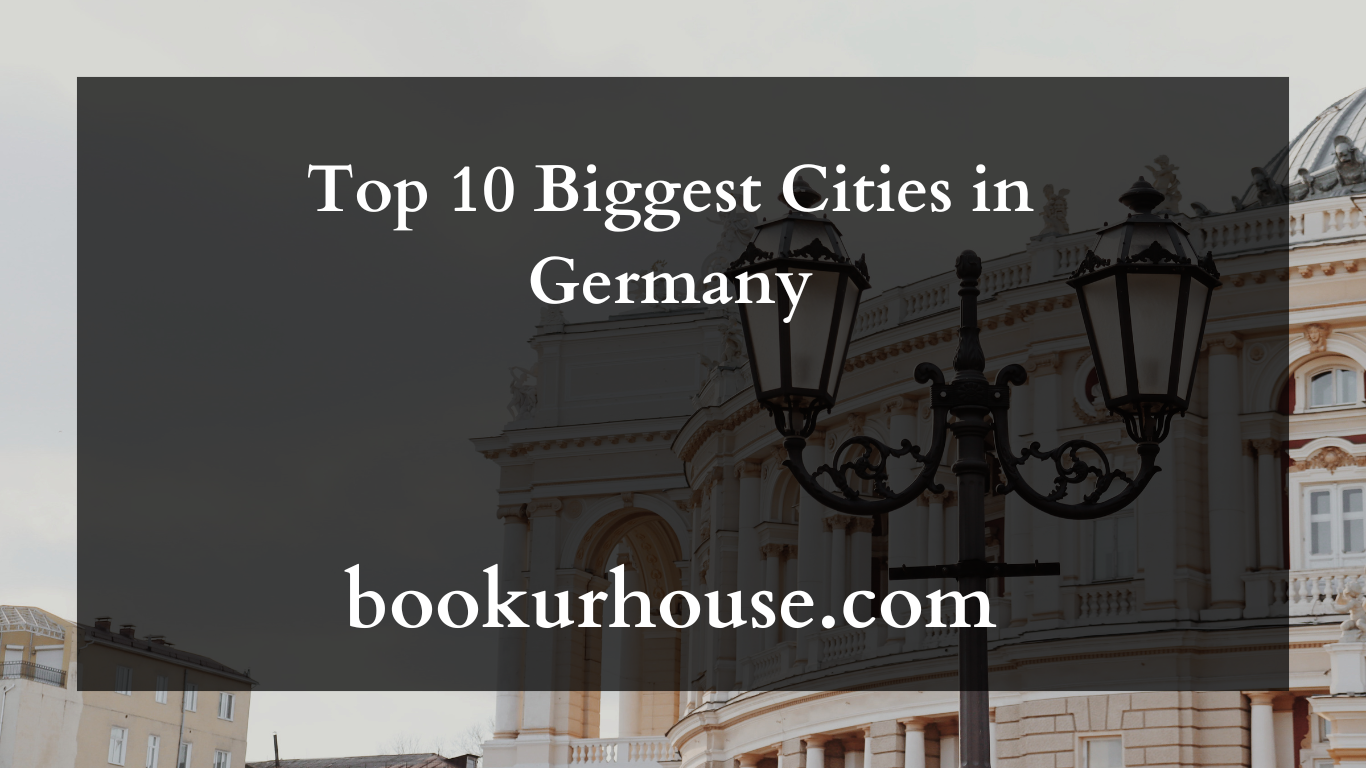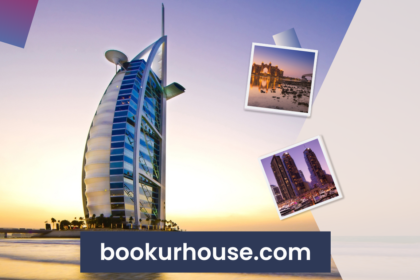Germany, known for its rich history, social variety, and monetary ability, is home to some of Europe’s most lively and dynamic urban communities. Every city contributes interestingly to Germany’s woven artwork, from clamoring cities to enchanting archaic towns. In this article, we set out to reveal the Top 10 Biggest Cities in Germany, investigating their importance, charm, and the substance that makes them quintessentially German.
Here, we are talking about the Top 10 Biggest Cities in Germany:
Berlin: The Capital Marvel
At the core of Germany lies Berlin, the capital city that exemplifies the country’s soul of flexibility and advancement. As the biggest city in Germany, Berlin is a blend of societies, craftsmanship, and history. From the notorious Brandenburg Gate to the remains of the Berlin Wall, the city recounts a convincing story of solidarity and change. Its energetic nightlife, flourishing expressions scene, and top-notch exhibition halls make it a magnet for creatives and savvy people from around the globe.
Hamburg: The Port City Gem
Settled along the Elbe Waterway’s banks, Hamburg remains Germany’s second-biggest city and Europe’s third-biggest port. Eminent for its sea legacy, Hamburg flaunts a pleasant waterfront, clamoring harbor, and a variety of memorable milestones like the Speicherstadt (Warehouse District) and the dazzling Elbphilharmonie concert hall. With its enthusiastic areas, social celebrations, and culinary joys, Hamburg offers an enamoring mix of old-world appeal and present-day dynamism.
Munich: Bavaria’s Jewel
In the core of Bavaria lies Munich, a city inseparable from custom, lager, and Bavarian neighborliness. As Germany’s third-biggest city, Munich oozes a unique charm with its noteworthy design, rich green spaces, and lively brew gardens. Home to the widely popular Oktoberfest festivity, Munich welcomes guests to delight in its happy soul while investigating social fortunes, for example, the magnificent Nymphenburg Palace, the Marienplatz square, and the famous BMW Welt. With its rich history and cosmopolitan style, Munich offers a quintessential Bavarian encounter.
Cologne: A Rhineland Icon
Sitting gladly on the banks of the Rhine Waterway, Cologne charms guests with its staggering Gothic cathedral, lively riverside promenades, and mixed expressions scene. As Germany’s fourth-biggest city, Cologne brags a rich embroidery history and culture, evident in its Romanesque churches, medieval architecture, and top-notch historical centers. With its vivid motorcades and happy climate, the yearly Cologne Festival exhibits the city’s vitality and festivity, making it a must-visit objective in Germany.
Frankfurt: The Financial Hub
Generally viewed as Germany’s monetary capital, Frankfurt remains a reference point of financial ability and cosmopolitan style. With its striking horizon overwhelmed by smooth high rises, Frankfurt is a worldwide center point for money, business, and exchange fairs. However, amid its advancement, the city safeguards its legacy through milestones like the memorable Römerberg Square and the Goethe House, respecting its artistic heritage. Frankfurt’s different culinary scene, flourishing expressions of the local area, and beautiful riverfront make it a unique location for business and recreation explorers.
Stuttgart: Automotive Excellence
Settled in the core of the Swabian area, Stuttgart is inseparable from car advancement, plan greatness, and Swabian cordiality. As the origin of notorious vehicle brands like Mercedes-Benz and Porsche, Stuttgart praises its auto legacy through exhibition halls, test tracks, and plant visits that offer a brief look into the fate of portability. Past its auto ability, Stuttgart charms guests with its verdant parks, Extravagant engineering, and social jewels like the State Exhibition and Wilhelma Zoo, making it an enrapturing objective for fans and pioneers of the same.
Düsseldorf: Fashion and Flair
Prestigious for its design, workmanship, and lively nightlife, Düsseldorf epitomizes complexity and style. As possibly Germany’s most affluent city, Düsseldorf stuns guests with its stylish stores, a-list displays, and Michelin-featured cafés. The city’s rich Königsallee Avenue, fixed with architectural shops and extravagant brands, draws style fans from around the globe. Düsseldorf’s social scene flourishes with occasions like the Craftsmanship Düsseldorf fair and the lively Altbier culture, making it a powerful center of inventiveness and refinement.
Dortmund: Industrial Heritage
Situated in the core of the Ruhr locale, Dortmund is a city formed by its modern past and social renaissance. When a force to be reckoned with for coal and steel creation, Dortmund has changed into a unique city known for its green spaces, social variety, and dynamic expressions scene. The rejuvenated Dortmund U-Tower fills in as an image of the city’s resurrection, lodging historical centers, exhibitions, and imaginative spaces. With its vibrant, larger gardens, clamoring commercial centers, and notorious tourist spots like the Reinoldikirche, Dortmund offers a convincing mix of custom and innovation.
Essen: Cultural Capital of the Ruhr
As one of the European Capitals of Culture, Essen is a reference point for imagination, development, and metropolitan recharging. Once inseparable from coal mining and weighty industry, Essen has rethought itself as a social center point, with milestones like the Zollverein Coal Mineshaft Modern Intricate, a UNESCO World Legacy site, filling in as a demonstration of its modern legacy. Today, Essen stuns guests with its dynamic expression scene, elite historical centers, and culinary enjoyment, making it a must-visit objective for culture lovers and metropolitan pilgrims.
Leipzig: A City of Music and Culture
Saturated with history and creative legacy, Leipzig enthralls guests with its celebrated past and energetic social scene. Known as the city of Johann Sebastian Bach, Leipzig praises its melodic heritage through tourist spots like the St. Thomas Church, where Bach filled in as cantor, and the yearly Bachfest, a festival of traditional music. Past its melodic legacy, Leipzig charms guests with its wonderfully safeguarded noteworthy focus, flourishing expressions of the local area and diverse nightlife. With its mix of custom and innovation, Leipzig offers an enthralling look into Germany’s social soul.
Germany’s 10 most significant urban communities address an embroidery of history, culture, and development, each contributing mainly to the country’s personality and charm. From the clamoring roads of Berlin to the grand riverbanks of Cologne, these urban areas welcome guests to investigate their rich legacy, lively areas, and dynamic social scenes, promising an extraordinary excursion through the core of Germany. Whether enjoying Bavarian cordiality in Munich or delighting in the imaginative style of Leipzig, these urban areas offer a vivid encounter that catches the pith of Germany’s past, present, and future.
FAQs
What are the top 10 most prominent cities in Germany?
Berlin, Hamburg, Munich, Cologne, Frankfurt, Stuttgart, Düsseldorf, Dortmund, Essen, and Leipzig are among Germany’s top 10 most prominent cities by population.
What makes Berlin the largest city in Germany?
Berlin is the largest city in Germany in terms of population and area. It serves as Germany’s capital and cultural center, attracting people from all over the world with its rich history, vibrant arts scene, and diverse population.
Is Hamburg one of the largest cities in Germany?
Yes, Hamburg is one of the largest cities in Germany and serves as a major port city, economic hub, and cultural center in the country. It is known for its maritime heritage, stunning architecture, and bustling waterfront.
Why is Munich considered one of the largest cities in Germany?
Munich is one of the largest cities in Germany and is known for its economic strength, cultural attractions, and high quality of life. It serves as the capital of Bavaria and is famous for its beer gardens, historic architecture, and vibrant arts scene.
What are some notable features of Cologne, one of the largest cities in Germany?
Cologne is one of the largest cities in Germany and is famous for its stunning Gothic cathedral, vibrant nightlife, and cultural festivals. It is also known for its picturesque Old Town, bustling shopping streets, and scenic waterfront.
Why is Frankfurt considered one of the largest cities in Germany?
Frankfurt is one of the largest cities in Germany and serves as a major financial center, transportation hub, and cultural destination. It is known for its modern skyline, historic landmarks, and international trade fairs.
What are some attractions in Stuttgart, one of the largest cities in Germany?
Stuttgart is one of the largest cities in Germany and is known for its automotive industry, green spaces, and cultural institutions. It is home to the Mercedes-Benz and Porsche museums and the stunning Stuttgart State Opera.
What makes Düsseldorf one of the largest cities in Germany?
Düsseldorf is one of the largest cities in Germany and is known for its fashion industry, vibrant arts scene, and scenic riverfront. It is famous for its luxurious shopping streets, lively nightlife, and annual carnival celebrations.
Is Dortmund one of the largest cities in Germany?
Yes, Dortmund is one of the largest cities in Germany and is known for its industrial heritage, vibrant cultural scene, and world-class soccer team. It is home to the Signal Iduna Park stadium, one of the largest soccer stadiums in Europe.
What are some highlights of Essen, one of the largest cities in Germany?
Essen is one of the largest cities in Germany and is known for its industrial history, cultural attractions, and green spaces. It is home to the UNESCO-listed Zollverein Coal Mine Industrial Complex and several museums and parks.
Conclusion
The top 10 most significant cities in Germany showcase the nation’s diversity, culture, and economic significance. From Berlin’s vibrant streets to Munich’s historic charm, each town offers a unique blend of tradition and modernity. Whether you’re exploring cultural landmarks, indulging in culinary delights, or experiencing pulsating nightlife, Germany’s most significant cities have something to offer for every traveler. As dynamic centers of innovation, commerce, and culture, these cities are pivotal in shaping Germany’s identity and global influence.












